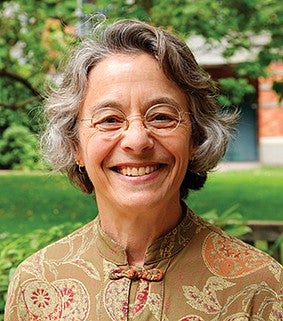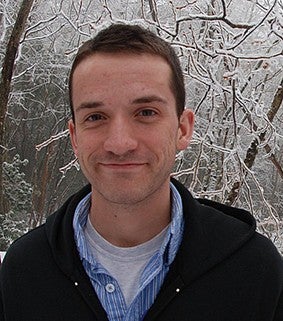Center for Translational Biomedical Research
Principal Investigators and Mentors: Knight Campus Faculty Fellow Professor Karen Guillemin, Institute of Molecular Biology/Biology and Professor Judith Eisen Institute of Neuroscience/Biology
External Funding: This research is supported by a NIH P01 grant to Guillemin and Eisen and a Gordon and Betty Moore Foundation grant to Eisen.
Candidate: David James
Resident communities of microbes, referred to as microbiota, play critical roles in brain development and function. Many neurodevelopmental disorders, including autism spectrum disorder, schizophrenia, attention deficit hyperactivity disorder, and bipolar disorder, can involve intestinal dysbiosis, in which the gut microbiota composition is unbalanced. These disorders can also be accompanied by dysfunctions in parts of the visual system that process visual information. This project aims to learn how microbiota contribute to normal visual system development, to understand what goes awry when microbiota are dysbiotic. This is a first step toward designing therapies to alleviate or prevent neurodevelopmental disorders.
David James, a new postdoctoral fellow jointly mentored by Knight Campus Fellow Karen Guillemin and Judith Eisen, will conduct research to investigate how the microbiota impact visual system development. James will pursue preliminary data generated in the Guillemin and Eisen laboratories identifying specific bacterial products that reverse optic tectum developmental defects in germ-free zebrafish. The zebrafish studies will enable us to identify microbial species and products that are important for normal visual system development. Integrating these findings with studies in human subjects will reveal whether similar microbiota patterns are associated with either visual system functions or neurodevelopmental trajectories in infants and children.
Principal Investigators and Mentors:

Knight Campus Faculty Fellow
Professor, Institute of Molecular Biology/Biology

Professor, Institute of Neuroscience/ Biology
Candidate:

David James
David James recently completed his PhD at the University of Miami. His dissertation focuses on exploring possible causes for the gastrointestinal distress frequency associated with autism spectrum disorder. During his graduate studies, he has gained experience working with clinicians as well as patients and their families; these interactions helped shape and focus his doctoral work. His future career goals include researching neurodevelopmental diseases in collaboration with clinicians and he looks forward to clinical collaborative opportunities during his postdoctoral training. View full CV.
